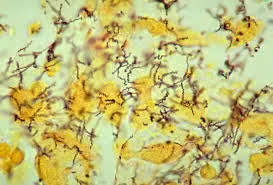
Introduction Treponema species are thin, spiral-shaped bacteria belonging to the family Spirochaetaceae. Among them, Treponema pallidum is the most medically important species and is the causative agent of syphilis. Syphilis Read More ……..
Simplifying Allied Health Learning.

Introduction Treponema species are thin, spiral-shaped bacteria belonging to the family Spirochaetaceae. Among them, Treponema pallidum is the most medically important species and is the causative agent of syphilis. Syphilis Read More ……..

Introduction Neisseria is a genus of Gram-negative, aerobic diplococci that are exclusively human pathogens. Most species are commensals of the upper respiratory tract, but some are highly pathogenic. The two Read More ……..

Introduction Escherichia coli (E. coli) is a Gram-negative, rod-shaped bacterium belonging to the family Enterobacteriaceae. It is a normal commensal organism found in the intestinal tract of humans and warm-blooded Read More ……..

Introduction Antiseptics and disinfectants are chemical agents used to control the growth of microorganisms and prevent infections. They play a crucial role in healthcare, laboratories, and public health settings. Antiseptics Read More ……..

Introduction Culture media are essential for supporting the growth of microorganisms in various laboratory applications. Understanding the roles of each component, from nutrient sources to solidifying agents, is crucial for Read More ……..